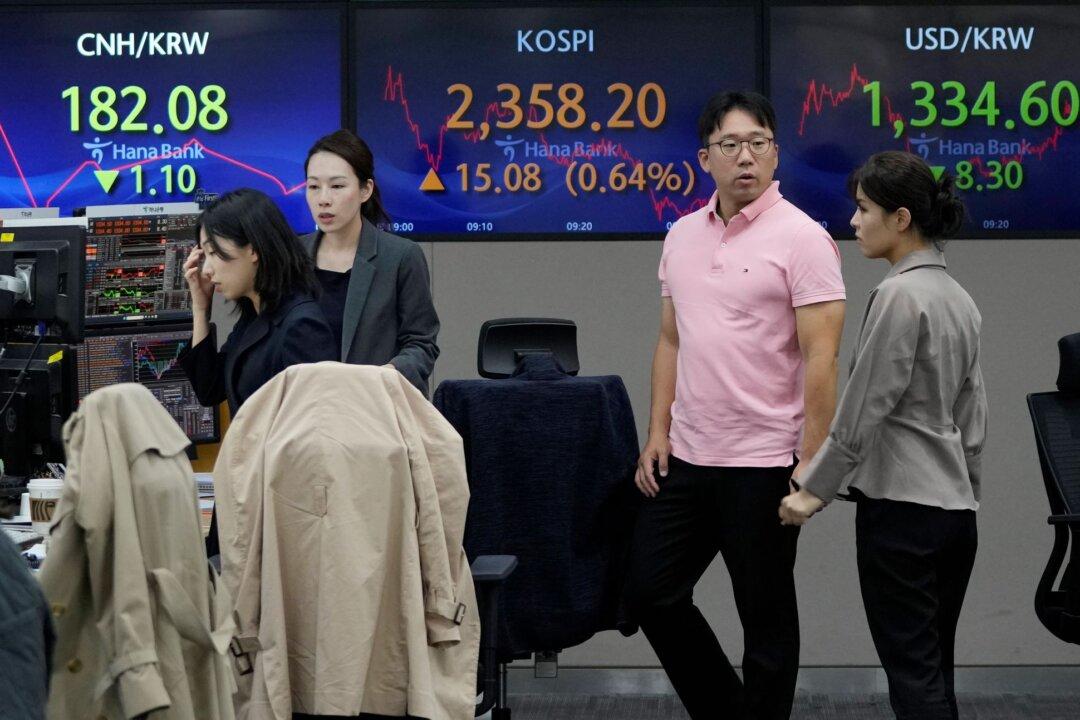HONG KONG—World shares advanced on Friday after Wall Street roared higher on bets that market-rattling interest rate hikes are coming to an end.
U.S. futures were little changed and oil prices logged modest gains.

HONG KONG—World shares advanced on Friday after Wall Street roared higher on bets that market-rattling interest rate hikes are coming to an end.
U.S. futures were little changed and oil prices logged modest gains.